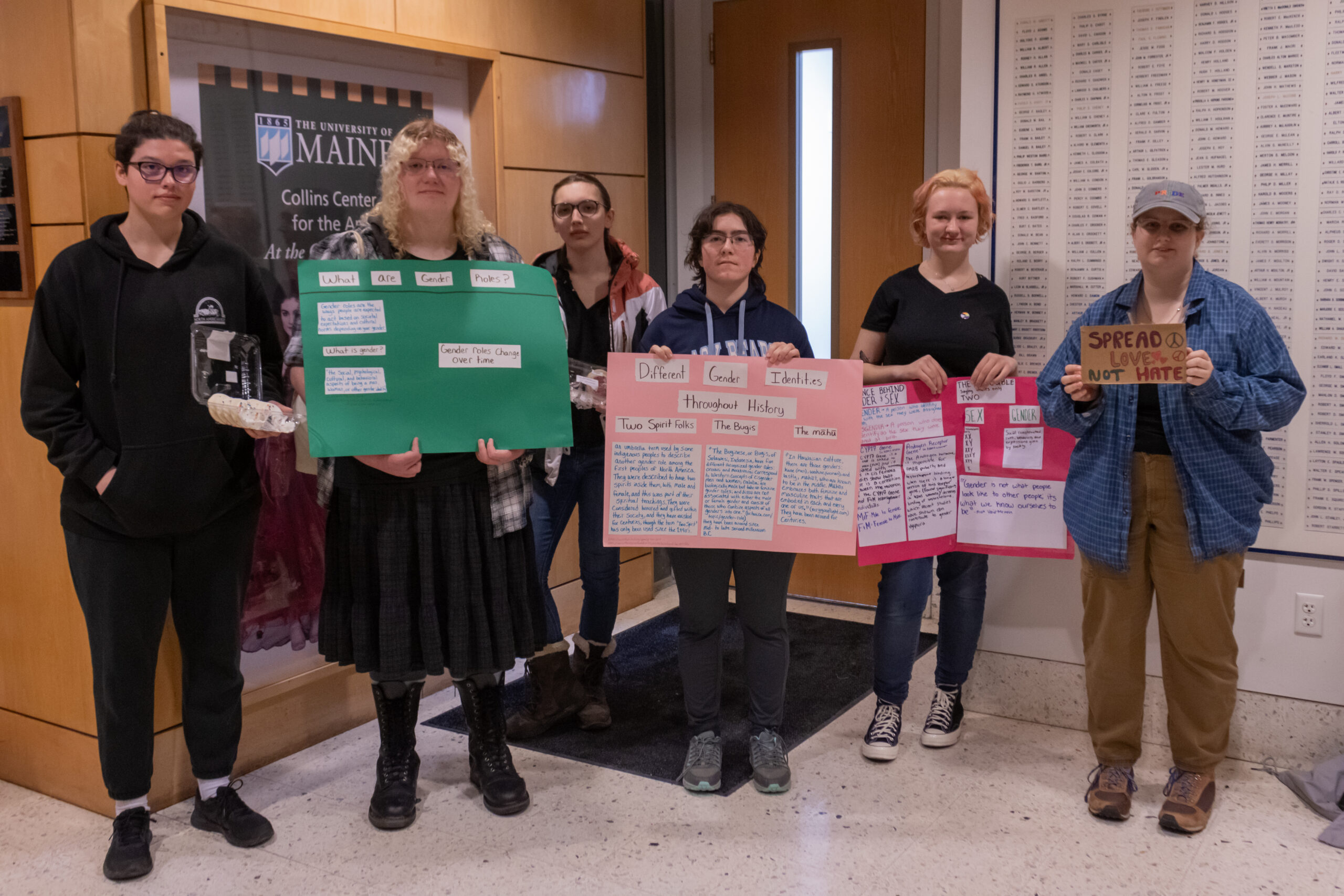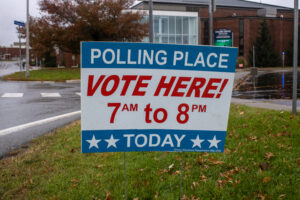Dr. Tomas Bogardus, a Ph.D. philosopher of metaphysics and epistemology, delivered a lecture at Minsky Hall on Feb. 28, where he evaluated arguments in the current controversial climate surrounding sex and gender disputes.
Members of Wilde Stein, the University of Maine’s Queer Straight Alliance Club, protested outside of Minsky Hall with posters. They advocated for transgender recognition and equality, which Bogardus’ philosophy does not support.
Before beginning, he stressed the importance of presenting challenging and conflicting deductions in a “respectful and kind” manner without “questioning the value and dignity of everyone” in the room.
“I understand that my visit here has generated controversy,” Bogardus said. Leading up to Bogardus’ talk, students tabled against his philosophies.

He advised that “compassion, gentleness, and respect” encourage productive conversations surrounding hot-button issues regarding accessibility to women’s sports, medical interventions for minors and gender pay gaps in the United States. Bogardus stated that the word gender is ambiguous.
He disapproves of definitional patterns found from the Centers for Disease Control, the American Psychological Association and the World Professional Association for Transgender Health that, according to him, fall short of providing clarity to this presently polarizing subject. All three organizations defined gender identity as a person’s internal, innate or intrinsic sense of being male, female or “something else.”
“Trans-inclusive philosophers agree that more work needs to be done on the concept of gender identity,” Bogardus said, referencing “What Even Is Gender,” a recently released book by R.A. Briggs and B.R. George.
From Bogardus’ standpoint, sex distinction reflects society’s interest in the reproduction of a species. He referenced a quotation from Evolution’s Rainbow by Joan Roughgarden, a biologist who identifies as transgender: “To a biologist, ‘male’ means making small gametes, and ‘female’ means making large gametes. Period!”
Bogardus states that Individuals condemning “biological essentialism” reject the premise that men and women compose distinctive physical essences and denounce terms defining women solely based on their reproductive capacities.
“If men exist, then something makes them men. Some things are defined physically but are very socially significant. Gold is the element 79 proton. Water is defined chemically as H2O. Both are very socially significant nonetheless,” Bogardus said to counter anticipated criticisms.

During the Q&A session, several students probed Bogardus to clarify the validity of biological definitions and address the political correctness movement.
“You mentioned that a woman is someone who is biologically female. But you complained that ‘a man identifying as a man’ is circular,” one student said, arguing that biological definitions confront the same shortcomings of circularity.
Bogardus answered: “When philosophers call a definition circular, the word to be defined appears in the definition. The property you’re pointing out, a biconditional relationship, is a necessary feature of every definition,” elaborating that a claim of equivalence does not automatically contribute to circularity.
Responding to a request to discuss how inter-sex individuals belong in this conversation, Bogardus said: “It’s possible for a human to be both male and female,” citing the existence of organisms capable of producing both sperm and eggs.
Reacting to another student’s reference to surgical alterations for infants born with ambiguous genitalia, Bogardus said: “That sounds barbaric. I don’t think I would do [that] to my children.”
Follow-up inquiries can be addressed to Bogardus’ email: Tomas.Bogardus@pepperdine.edu for further clarification on his remarks or accumulated research about the mind-body relationship and the scientific rationality of self-identification.













